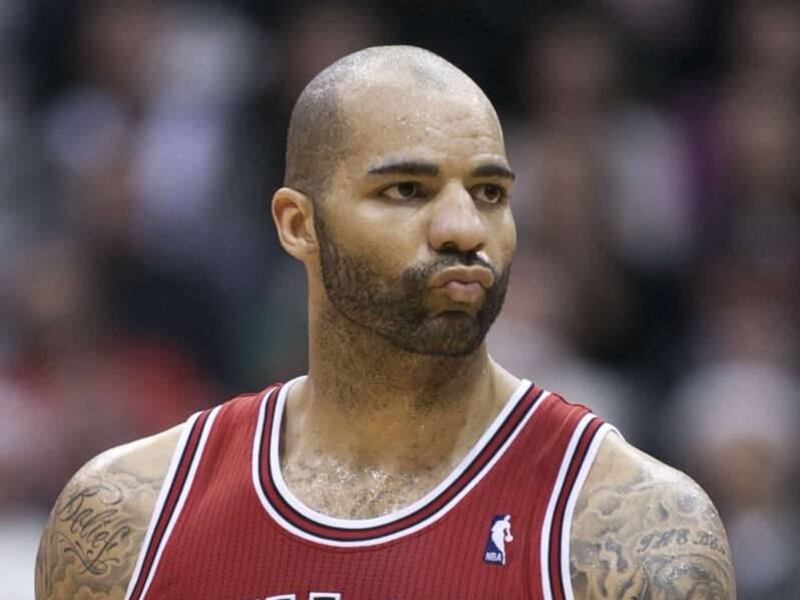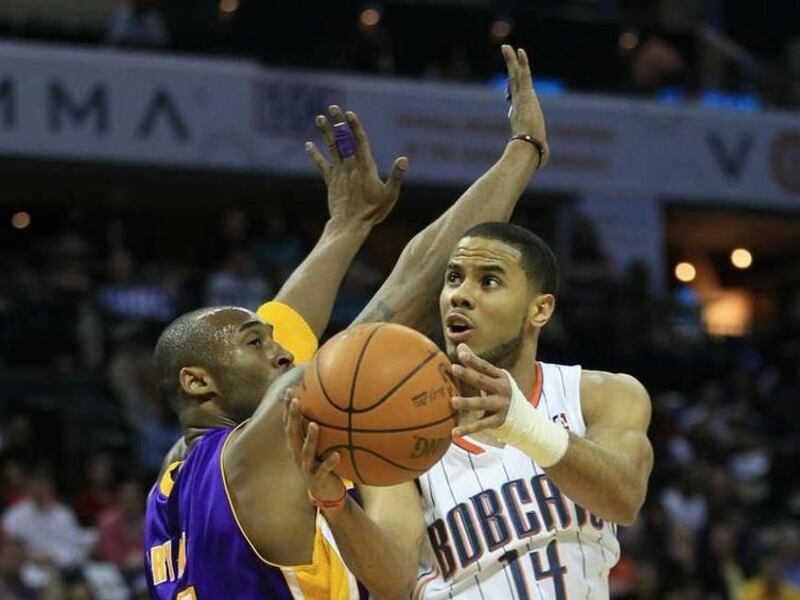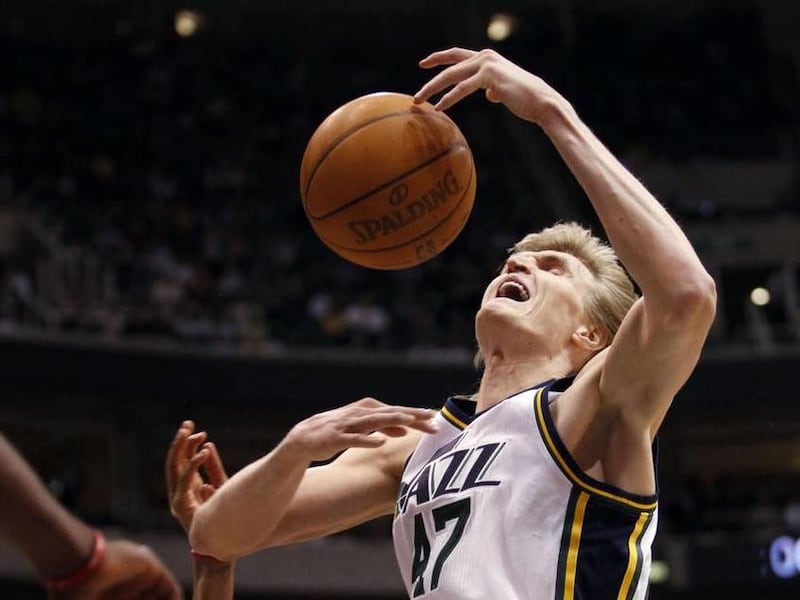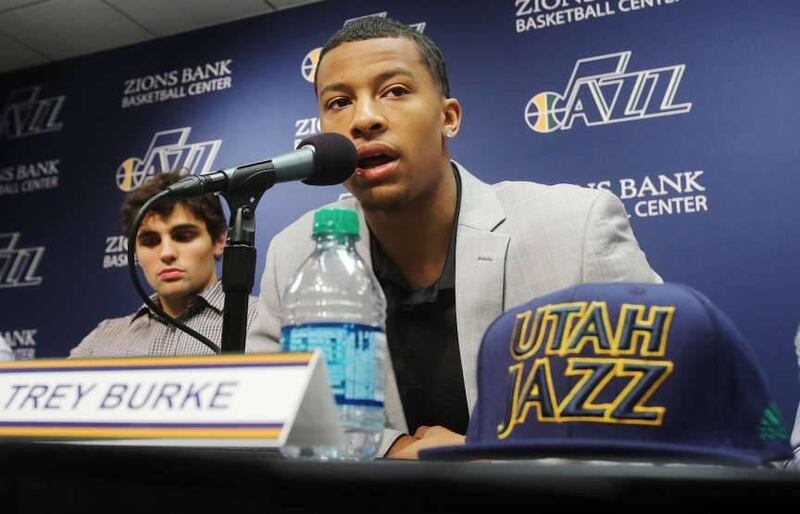Trey Burke has Jazz fans excited. No doubts there. If he fails to deliver on that excitement, there will be disappointment.
There is room for error, though. For all the annual preseason hype around yet another young Jazz prospect (Gordon Hayward might get the least amount of attention next season), there's the widely accepted fact that the draft, when all is said and done, is a crapshoot.
Like Burke, D.J. Augustin was a heralded point guard in college who went ninth in the draft to Charlotte back in 2008. Like Burke, Augustin was pitched as the franchise's point guard of the future.
Five years, two teams and a terrible 2013 playoffs performance later, Augustin has been dismissed as one of the countless lottery picks that failed to fulfill optimistic predictions.
As hard as teams try, there's really no way to predict how a college player's game will translate to the pros. The draft is forgiving that way.
Free agency is not.
Free agents are different; they're already pros. A team has seen a free agent at least twice the previous year, sometimes four times, even more if that player's team was a playoff opponent. In other words, free agents are known, NBA-tested products.
If free agents change significantly after switching teams, it's usually due to their surroundings more than any alteration from the player himself. Chauncey Billups got playing time in Detroit. Steve Nash got Amar'e Stoudemire and Mike D'Antoni in Phoenix. On the negative extreme, Dwight Howard got Kobe Bryant, Pau Gasol and Nash in Los Angeles.
Other than that, an NBA free agent is usually established. Cemented. Defined.
Room for the hindsight excuse is low. Management knows, or at least they should know, how its team is constituted. It should (within a reasonable guess) be able to foresee how an established NBA player would mesh with his own team.
More importantly, management is also in charge of the money involved.
Rookies are affordable. They're pigeon-holed into a predetermined, scaled salary bracket, so there's no blaming management for an overpaid player still on his rookie contract.
Free agents are different. They are and can afford to be greedy. General managers, however, are the ones with the final say on the the number behind the dollar sign.
There's a risk that comes with that power. Whatever that player makes will be a reflection of a general manager's genius (Stephen Curry) or ineptitude (Landry Fields). Sign a player that meets or exceeds the expectations his contract implies, and your fans will adore you. Shackle your team with a bloated contract attached to a useless player, and the collective stomach of that team's fan base will churn every time that player's name is mentioned.
The Jazz have been smart for the better part of their history. Andrei Kirilenko was one of the few highly paid players that inspired bile to form in fans' mouths, but only after his play frustratingly declined after a few stat-stuffing seasons.
Other than that, the Jazz have either done decent-to-well — Carlos Boozer, Mehmet Okur — or played the free agency game well on the safe side — Randy Foye, Ronnie Price.
With plenty of cap space available this summer, the temptation to make a big splash is significant. No fan base likes being the eye in the free agency storm. It's boring. It gives the illusion that no progress is being made.
At this point, however, the direction of the Jazz is clear. They are committed to youth. Burke, Hayward, Enes Kanter and Derrick Favors are the present and future. Depending on who you ask, Alec Burks is also in that group.
If that's the case, how big a splash do the Jazz really need to make? Outside shooting is a must. That can be addressed, usually at a reasonable price.
What the Jazz — and most other teams — can't afford to do is take action for the sake of appearing active. Utah knows too well the frustration of being overstocked at a specific position, burdened with similarly skilled players.
Utah has its building blocks. The need to haul in a highly priced cornerstone is minimal, especially if the fit is at all questionable.
Fans may clamor for more action now. Just know that any general manager is more worried about the noise that could follow.
Matt Petersen is the senior sports web writer for DeseretNews.com. You can follow him on Twitter at @TheMattPetersen.





